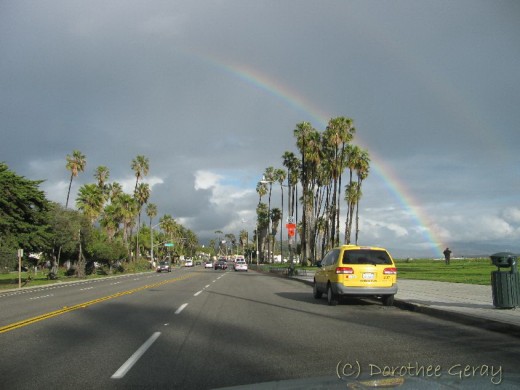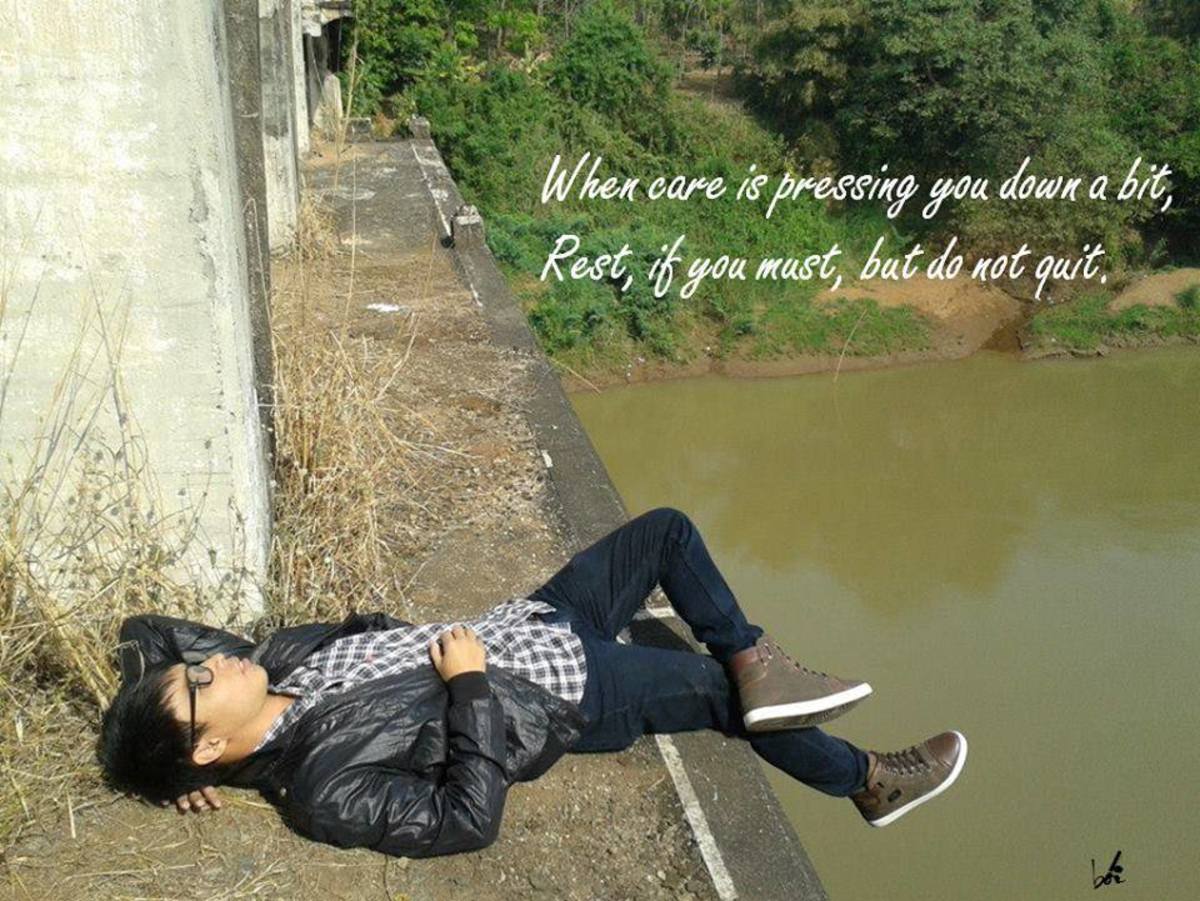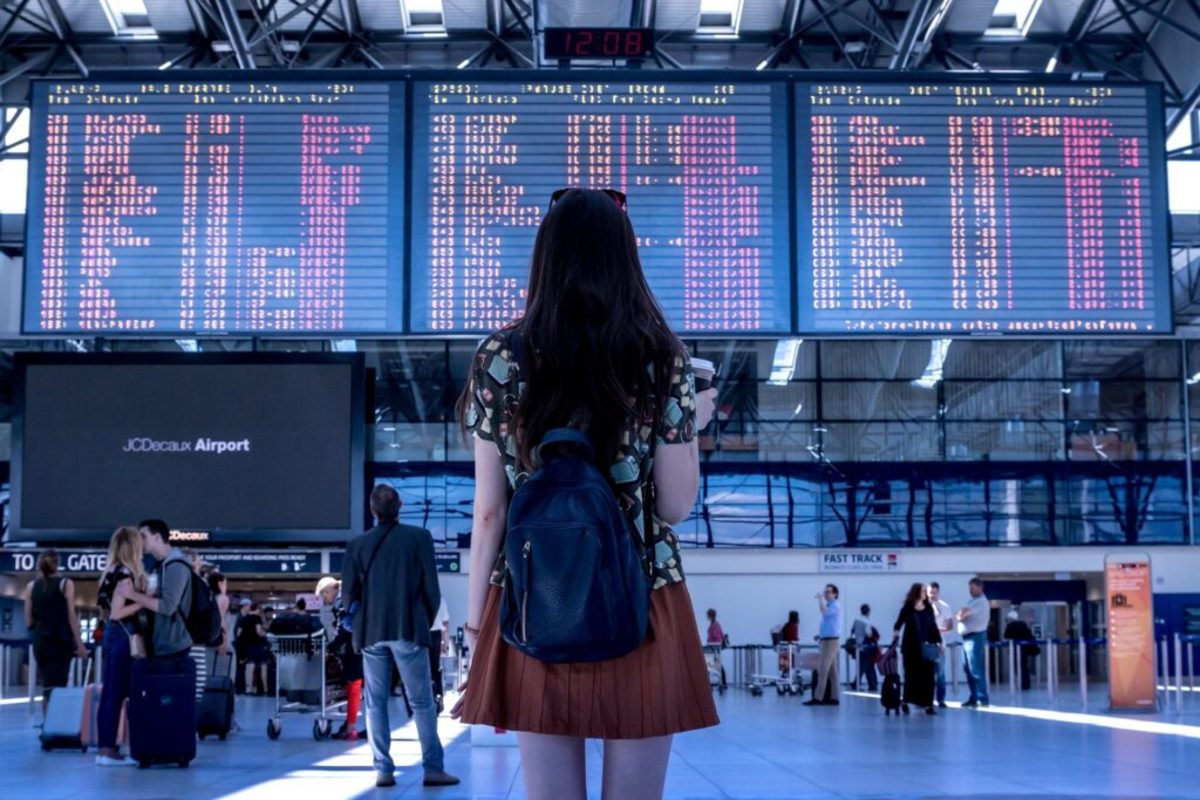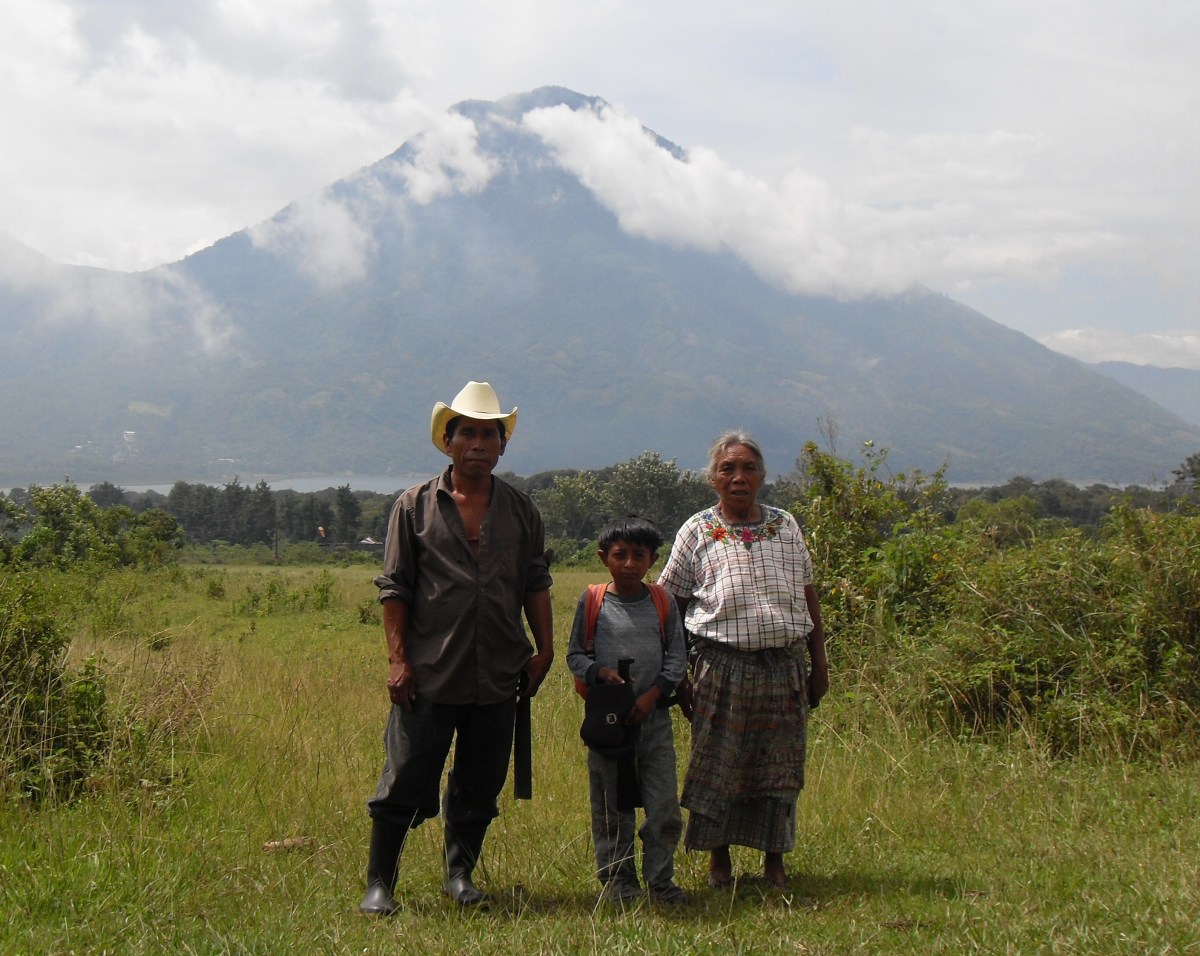The Urge to Travel - What's behind it?
If you ask an arbitrary number of people what they would do with their life if they could do whatever they want, the answer that comes most frequently and most easily is “I'd travel the world”.
Seems to be a no-brainer, like breathing or sleeping. And yet, if we look at it objectively, we have to ask ourselves 'Why is that so?'. Traveling very often means, putting up with way less than we are used to, staying in rooms that might not live up to our usual standards, waiting for trains or airplanes to arrive or depart, enduring annoying security procedures, dealing with unknown languages and undecipherable street signs, eating things our stomachs are not cut out for and subjecting our organism to different time rhythms and zones.
Very often, after we have traveled for a while, we kind of get fed up with it and are really grateful and happy to come back to our “old life”. But after a short time, many get antsy and soon they are ready to go out and hit the road again.
But not all of this is really fun, it all has a rather strenuous component, which normally would make traveling an activity that would rather make us reluctant to experience.
So I think there is something else that makes us eager to go on a trip. Sure, it is also about seeing new things and getting new impressions, having different experiences, but first and foremost, it is about escaping from our daily grind, from all the thousand small and big obligations that life brings with it. When you're traveling, there is no lawn to mow and no mail to answer. There might be dishes to wash and the little cottage you're staying in might be equipped with a laundromat, so you can wash your things once in a while, but it doesn't really add up to a daily chore, to things that have to be done today.

What is it about traveling?
When we're traveling, we tend to be more flexible, not as rigid, not so eager to get everything done on time. We live more and function less. And we have no problem with it. We go on a trip and we might come home late and the laundry is still not done, and it doesn't really matter. We have a lot less things to take care about and we suddenly realize that a lot of the things we thought of as indispensable, just aren't so important after all.
And so, it very often happens, that we toil all year in order to afford all the nice things we surround ourselves with. We equip our houses with the nicest and most efficient nicknack, we spend endless times to decide which kind of windows and doors we want to install, which furniture to buy and which lamps to attach, and as soon as we have a few days off from work, we pack one or two suitcases full of our stuff and off we go!
So these wonderful homes we created, with all their on the point equipment are only lived in during the times when we don't have the time to enjoy them, we come home in the evening, scramble to get everything done that has to be done and head out early in the morning, but we hardly take the time to actually indulge in the luxury of our homes, because there is this urge to go out and see something else when we finally make it to a few free days.
And then we live in a cottage with single pane windows, with doors that barely shut close, with the most functional furniture, hard mattresses and outdated installations, and we are happy and content with all of it, since it is not our responsibility, and we can just accommodate to it and everything is fine. We go out and make excursions, take a lot of pictures of live circumstances that we would abhor if we would have to live them on a continuous basis, but since we're only visiting, we think it is “idyllic” or “scenic”.
The revelation behind that, I guess, is that so many things that we take so serious aren't really all that important. It doesn't really matter if everything is perfect to the T, it is way more important that we feel good in using it, that we pay closer attention to what we really need. Most of the things we need to be happy have nothing to do with the high priced stuff we like to add to our daily life. We could easily be happy with less.
When I'm on vacation, I rarely miss the stuff I left back, I rarely think that I'd rather have it all around me. Very often, after a short time I have completely accommodated to what I have with me and the things I left at home are like a vague memory. Imagining a live without them doesn't seem to be so hard when I didn't have them for a while. Instead, it opens up new perspectives, and that always proves to be exhilarating.
Our daily life, in which we often compensate for the long hours of work and confinement with some unnecessary stuff that we buy from the money we got in exchange for our time and effort, gets over the time stuffed with all kinds of things we could easily live without. And they all take away our energy, and make us lethargic, which might very well be the reason for their existence in our life anyway. Like a ballast, they make us stay put, they give us the impression of immovability, solidity and security, while they hold us in this mold we have carved out for ourselves.
Whenever we are on a trip and we notice how easily we can slip into another existence, one with less structure, but more joy, we should really see it as the reminder it is. That life is not about the stuff we accumulate over time, but about our time, our joy, our curiosity, our well-being, and our harmony with ourselves.
And whenever we notice that we feel so eager to go on a trip, we should ask ourselves if there are rigid structures in our live which we impose upon ourselves, and which could easily be adjusted to make our daily life more like a vacation, once we recognize what is really important to us and what is just part of the game we play.
It is our life, it is our happiness, we have to make sure that we do most of the things we do because they add to our life, not because someone else thinks we should.
One part of the traveling experience is that we don't know our neighbors, we don't know the people around us, so we think we can more easily be who we really are. But we should be that anyway, and we should not try to please other people so much that we forget to care about our own happiness over it. Many people live in a constant apprehension of what their neighbors might think of them and what they might talk behind their back, and so they spend most of their time trying to keep up the facade of how they think they should behave.
This is good and nice if it is what makes them really happy, but if there is a discrepancy, you have to decide what is more important to you. You can either make your neighbors and your social group happy or you can care about your own well-being first. If you do the latter, you will be happier and you will over time attract more and more people who are a genuine match to you, who just like you as you are, without any artificial bending from your side.
And even though it feels in the beginning like the harder thing to do, it is on the long run the better way to live. You might even find out that you can get so comfortable in your own life that you don't have to go away to feel satisfied. And then, you can feel like being on vacation all year round.
I think craving for traveling is in the first place due to the feeling of freedom that we perceive when we are away from our daily life. But this is only a figment of our imagination, because, if we look closer at it, most of the binds that we impose on our everyday life are artificial ones, they don't have a real basis. And once we understand that completely, we can start to look for all the incidents of freedom that we have in our everyday life and after a relatively short time, our yearning for a freer life experience will vanish, because it didn't have so much to do with the traveling and seeing new places, as it had to do with the feeling of freedom and independence.
Whatever we focus upon gets more, so as soon as we start to focus on the freedom that we have in our life instead of the perceived bondage and limitations, we will find the only real freedom we ever really have, the freedom of our mind, the independence to focus on whatever we decide to give our attention to.
And then, we will feel free wherever we are.
© Dorothee Geray 2010
P.S.: If you liked the article, share it via the twitter or facebook button!
A few more travel hubs...
- To Travel As Single???
Over the last few years I have heard it over and over: Id like to travel, but I dont know, travelling alone doesn't feel so good, I think I'll wait until I'm in a relationship again"... - Travel Packing Tips and Tricks
In this little article I have compiled a few of the tips and tricks that are born out of my travel experience. I have been travelling quite a lot in the past years, not only for fun, but... - Helpful Travel Tips for Single Travellers
The best way travel alone is in my book to do a roundtrip, with staying nowhere longer than maximally two or three days, so that my schedule is always full and there is no room for melancholic feelings.






